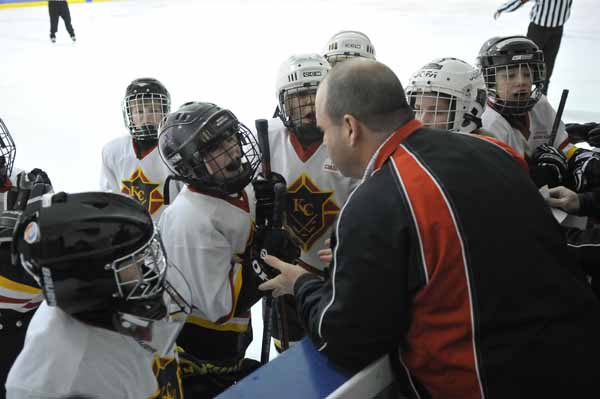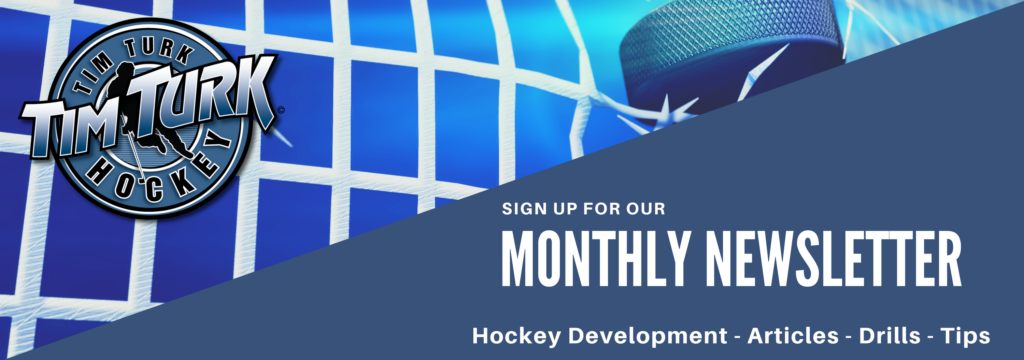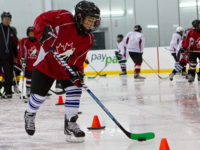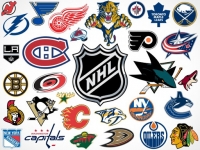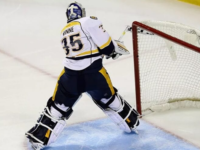Imagine taking part in a team sport without any communication whatsoever. No direction from the coaches, no talking amongst players, and no game plan whatsoever. That’s a recipe for disaster, and hockey is no exception. The greatest hockey teams have well-thought-out plans that have been discussed over and over between coaches, management, and players. Strong performance on the ice requires players to effectively communicate both verbally and non-verbally. Whether it’s simply letting your teammate know you’re behind them or pointing out an opening in the defense, hockey players must be constantly communicating with each other and their coaches in order to remain successful.
Some players have outstanding skillsets that keep them on a higher level than others, but that doesn’t mean they can get by with just their talent. They must also be part of the team and participate in strong communication and organization. Here are some tips for coaches, managers, parents, and players to stay on top of this and keep strong, organized lines of communication.
Coaches and Managers
Depending on the age and level of your team, your players may or may not have strong communication skills. Very young children are just learning the basics of hockey, but it is still important to practice good communication and provide them with a sense of organization. Older players are more adept at speaking and communicating, but there are still wide variances in their levels. Some players may not be as strong as others in these regards.
Coaches can encourage better communication by enacting an open-door policy. They can hold team meetings where everyone is involved and allowed to speak their mind on any subject. This will help coaches and managers understand the players as well as letting the players understand each other. If someone saw something on the ice that they didn’t like, they can communicate this respectfully and let everyone know how they would fix it. This can lead to discussion that may generate a new, successful game plan.
Whether a player has a good or bad game, coaches should show their support through positive verbal communication. You should certainly praise players if they had a great showing but remember to stay positive for players who didn’t perform up to their expectations. Let them know that this happens to everyone and that they have your vote of confidence for the next game. Negative, antagonistic speech will only hurt their performance and their opinion of you.
Use technology to your advantage as well. Send team emails that will outline the drills and intentions of the next practice. This will help team members to show up to practice more prepared and ready to play. Encourage feedback from other teammates and don’t be afraid to email members individually. If someone had something they didn’t want to say in front of the team, one-on-one communication may be the perfect chance to hear them out. Emails can be less intimidating than verbal communication at times and may lead to a face-to-face conversation in the future.
Parents
You want your kid to succeed – we all do. Your support should constantly be known to them, but don’t become too overbearing. Let them know that failures are okay and that it happens to the best of us. Praise them when they have an excellent game and encourage them after tough showings. Your children appreciate your support, but they don’t want to feel like they have to live up to something they’re not.
During gameplay, cheer for your son or daughter but don’t try to give them direction. They have a game plan that has been discussed with the team and the coach, and they need to work both as an individual and a team member to succeed. You may think you have the right idea but yelling at them while they are on the ice doesn’t help them and may only serve to distract them. Save your ideas for after the game. You can let them know your opinions but make sure to pay attention to what they have to say as well. After all, this was their game and hockey is their own personal learning experience.
Help your kid to stay organized by creating a schedule and making sure they are sticking to their practice time. Teach them the virtue of hard work and patience and let them know that all this practice will pay off. If you are still capable, go over drills with your kid if they desire. Give them constructive criticism, praising their strengths and helping them to address their weaknesses.
Players
Communication between players is important both on and off the ice. On the ice, make sure to always be looking at other teammates to check for puck position, open ice, and stay on top of unfolding plays. Use your stick as non-verbal communication, letting your teammates know when you are open or directing them towards open lanes. You can also yell out if you are open or near your teammate or tell them where the puck is if their back is to the play. When attacking with another offensive player, use your head to signal where you want to go with the play and pay attention to their body language in order to work as a team to find the back of the net.
Strong communication off of the ice is just as significant as it is during gameplay. Players should encourage each other and praise other team members for a job well done. They should interact with other players and coaches after the game to discuss the outcome and what went right and wrong. They should listen to each other’s ideas and plans for future games, offering counterpoints and insights in order to help form a more cohesive team. If players can communicate and organize effectively, they will be more prepared for every opponent that comes their way and they will enjoy the benefits of stronger friendships and on-ice performances.


